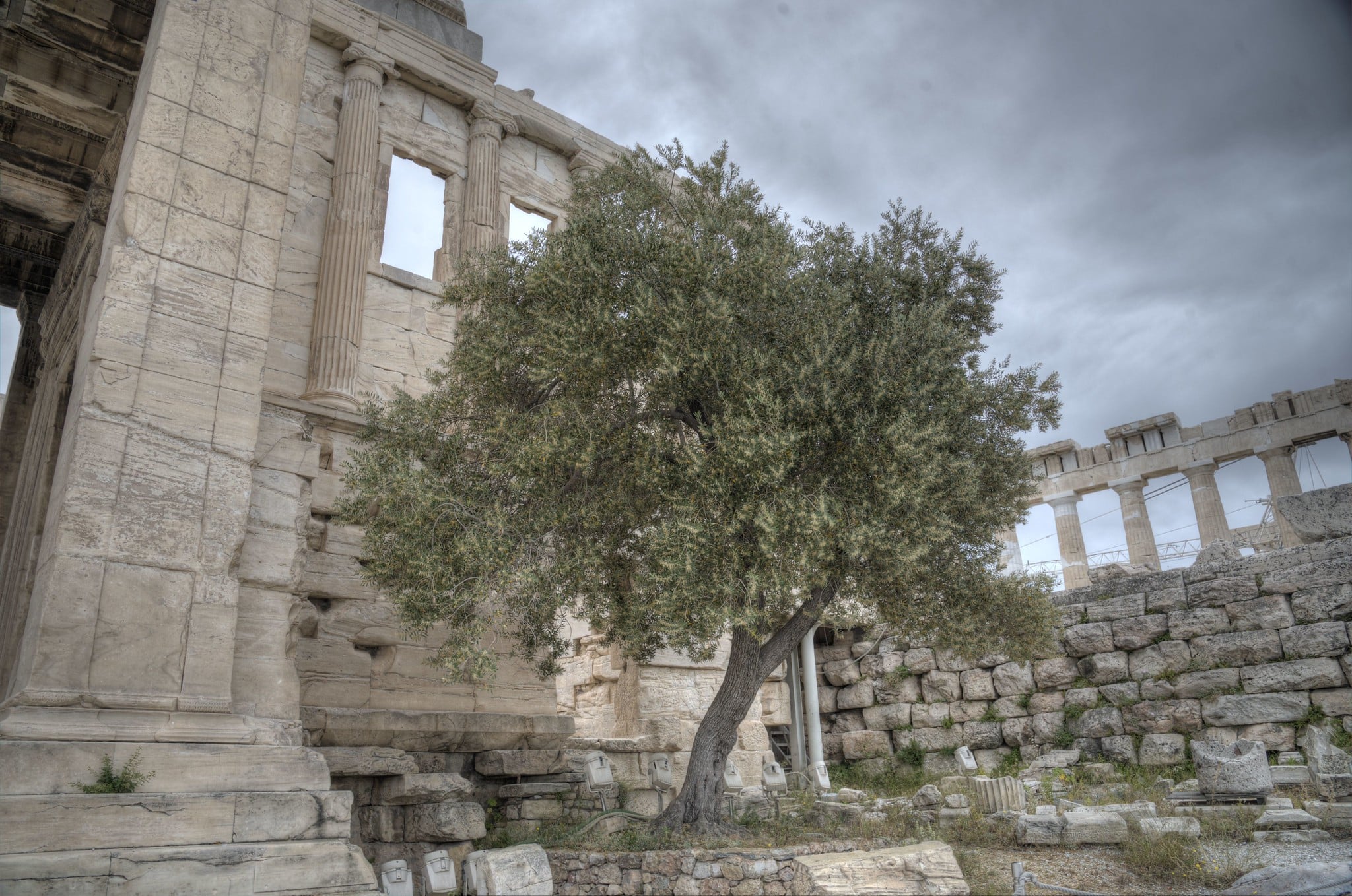
Olive tree on the Acropolis. Credit: Scott Ableman / Flickr / CC BY-NC-ND 2.0
Olive oil has shaped ancient Greek mythology, history, and philosophy for more than 7,000 years, according to new research published in the International Journal of Gastronomy and Food Science.
Lead author Maria Protopapas-Marneli says the olive tree and its oil were far more than a source of food. They played a central role in ancient Greek life—as medicine, perfume, fuel, and a sacred offering symbolizing harmony between gods and humans.
The study traces how this enduring ingredient influenced daily rituals, healing practices, trade, and even the moral values of an entire civilization.
A 7,000-year tradition rooted in Greece’s island of Crete
Researchers traced the story of olive oil to Crete, where cultivation began during the Neolithic period. Archaeological discoveries—from olive kernels in graves to transport jars—show it was a carefully managed and valuable resource.
Mycenaean palace tablets written in Linear B even record the term “e-ra-wo,” meaning oil, one of the earliest written Greek words. Palace authorities controlled perfumers who boiled herbs with oil to create prized ointments, traded among elites. This early system tied olive oil to wealth, trade, and craftsmanship.
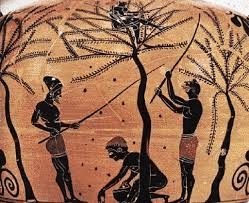
Ancient Greek vase depicting olive harvesting. credit: public domain
Homer’s epics reveal olive oil in daily life
Ancient Greek literature also preserves the cultural weight of the olive tree. In Homer’s Iliad and Odyssey, olive oil appears in rituals, meals, and healing scenes. In the Odyssey (6.210–220), Odysseus is bathed and “anointed richly with olive oil” by Nausicaa’s attendants before meeting her father, a symbol of purification and dignity.
Heroes like Odysseus and Achilles used oil to clean their bodies after battle. Goddesses such as Aphrodite and Hera perfumed themselves with it.
The olive tree itself appears in hymns and poetry as a living witness between gods and mortals. Through these verses, researchers say, olive oil represented vitality, purity, and divine favor in early Greek society.
Healing power in ancient medicine
The study highlights how olive oil shaped Greek medical practice. In the Iliad (11.830–840), Patroclus tends to the wounded Machaon by washing the blood and applying a healing balm—likely an ointment mixed with olive oil.
Hippocrates and later physicians such as Galen prescribed oil for wound treatment, skin care, and antiseptic use. They mixed it with wine, vinegar, and water to cleanse and soothe. Hippocratic doctors even sterilized sutures in heated oil.
The olive tree as Athens’ sacred emblem
The olive tree stood at the center of Athenian identity and myth. According to legend, the goddess Athena offered the olive to the people of Athens as a sign of peace and prosperity, winning the city’s devotion—and its name.
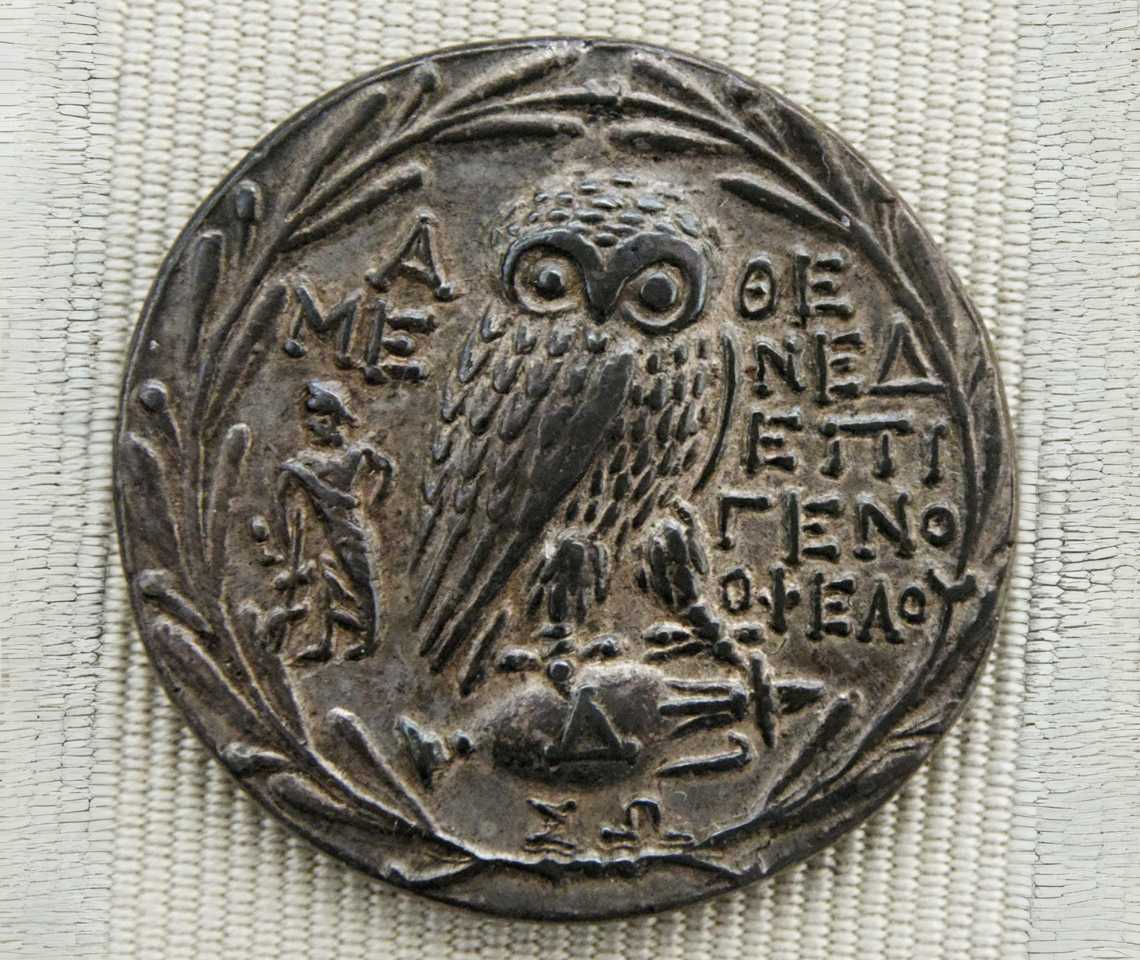
Athenian silver tetradrachm (ca. 200–150 B.C.) showing an owl and olive wreath, symbols of Athens’ wealth and olive oil trade. Credit: Marie-Lan Nguyen / Wikimedia Commons / Public domain
Writers described a sacred tree near the Erechtheion that miraculously regrew after the Persian invasion in 480 B.C. The tree’s protection extended into law: cutting down a state-owned olive could lead to trial and even death.
Coins bore olive branches, and athletes were anointed with oil before competitions. At the Panathenaic Games, winners received amphoras filled with olive oil—sometimes more than 5,000 liters—as a prize of honor.
Philosophy celebrates simple living and balance
In philosophy, the olive became a metaphor for moderation and wisdom. Plato imagined an ideal city where citizens lived simply, eating grains, olives, figs, and vegetables—the gifts of the earth. Xenophon described farms where “wheat, oil, and wine” sustained both health and community.
The Cynics and Stoics also praised simple diets rich in olives and legumes, viewing them as keys to self-sufficiency and inner peace. By promoting restraint and balance, Greek philosophers linked olive oil to moral strength and civic harmony.
Olive oil industry drives trade and innovation
From Crete to mainland Greece, olive oil powered industries that shaped the economy. It fueled lamps, softened fabrics, and preserved wood and leather. Palace records from Knossos and Pylos detail how bureaucrats managed supplies of herbs—like coriander and rosemary—mixed with oil to make perfumes.
Named artisans created signature blends for trade, showing that even in pre-classical Greece, olive oil supported a network of commerce, labor, and artistry.
Rituals and sports honor the olive branch
Rituals and games reinforced the olive tree’s sacred status. Olympic and Athenian victors wore olive wreaths (Greek: κότινος) as symbols of triumph and divine favor.
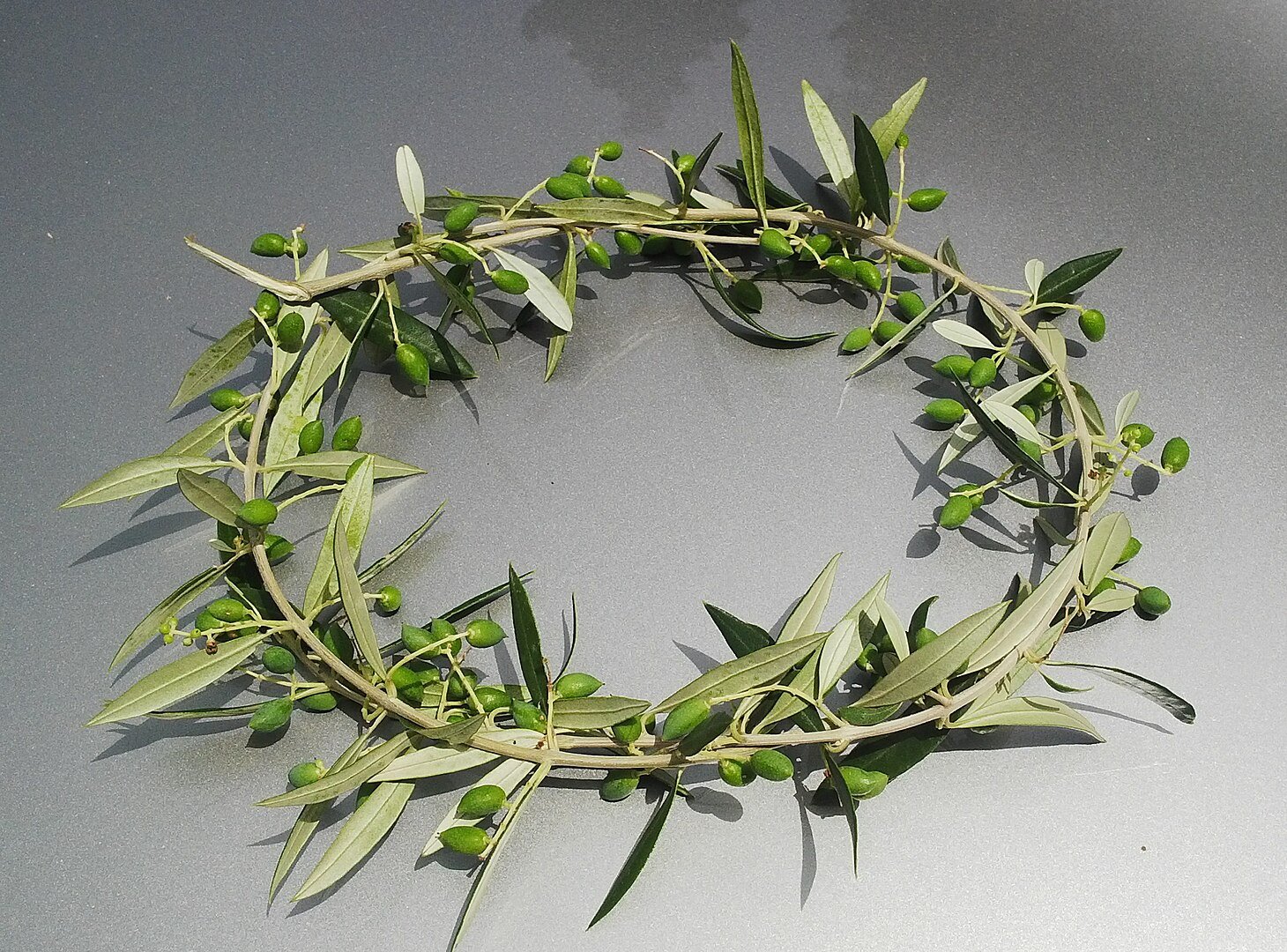
Olive wreaths, the prize for the winner at the Ancient Olympic Games. Credit: FocalPoint / Wikimedia Commons / CC BY-SA 4.0
The gesture had a double meaning—nature rewarding human excellence, and athletes offering their victory back to nature. Through sport, the olive became not just a tree but a moral emblem of endurance, renewal, and unity.
Culinary traditions that never faded
The study closes by showing how olive oil still anchors Greek cuisine. Ancient recipes describe fish cooked in oil with herbs, legumes finished with fresh oil, and pastries fried in oil and drizzled with honey. These dishes—echoed in modern Mediterranean cooking—demonstrate how olive oil linked nourishment and pleasure across time.
Protopapas-Marneli’s research confirms that olive oil influenced Greek mythology, daily life, and philosophy alike. For thousands of years, it has symbolized purity, strength, and continuity—from the sacred groves of Athens to today’s kitchens. Olive oil remains both a staple and a symbol, connecting ancient wisdom to the modern Mediterranean world.

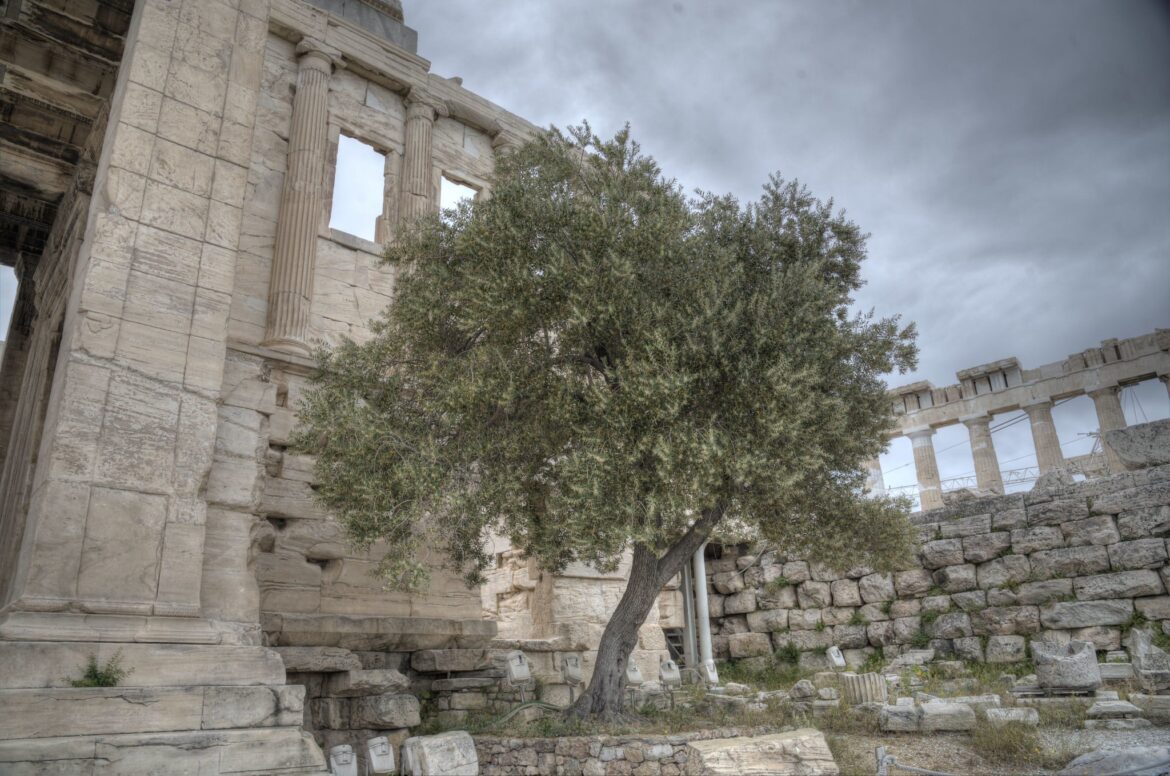
Dining and Cooking